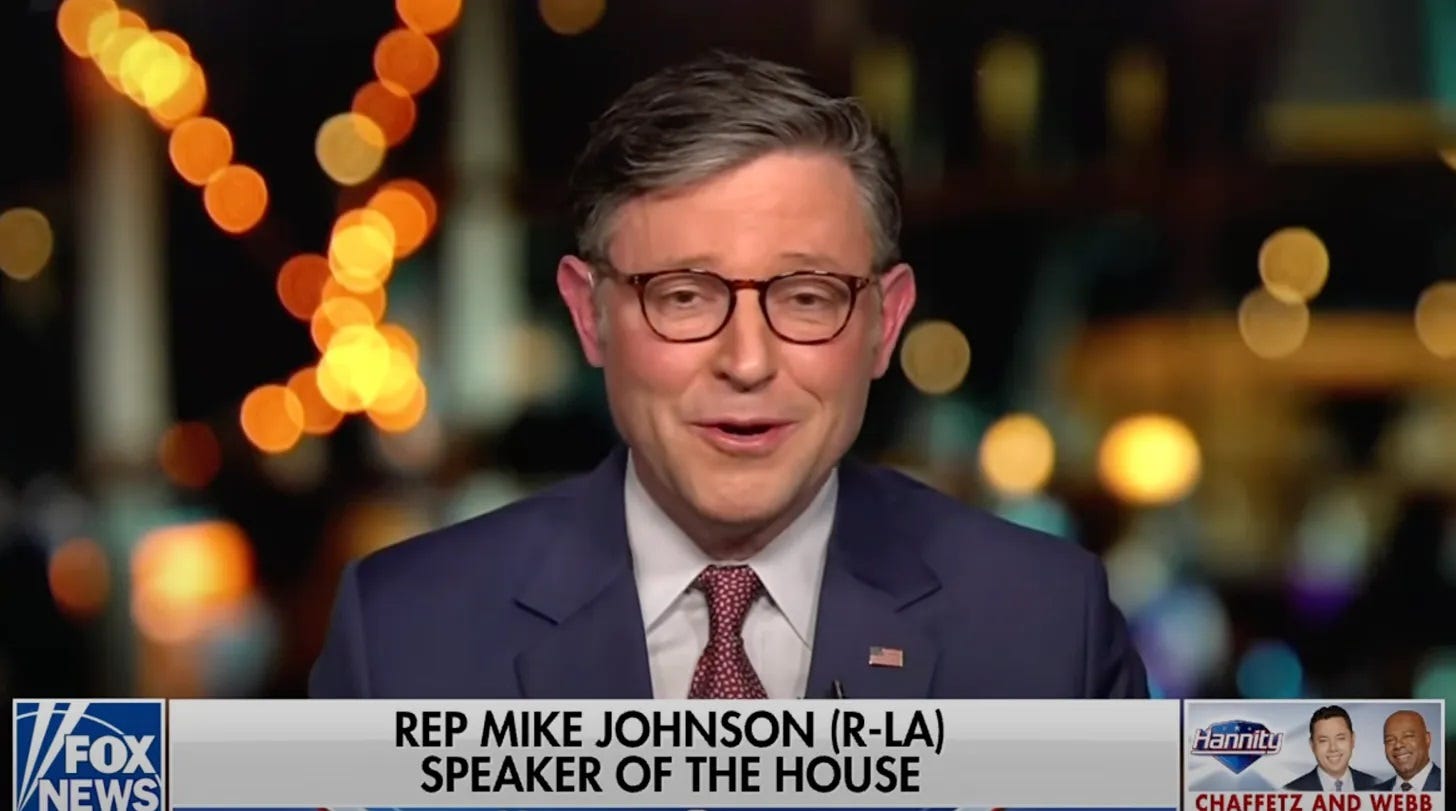Senate Votes To Stop Trump's Tariff Madness. Now The House Only Has To ... Oh, Sh*t
Just one simple vote could ... OK, make that two simple votes and then ... well, fuck.
Here’s a fun fact about Donald Trump’s new tariffs, which are neither fun nor based in any facts: Trump yesterday declared a “national emergency” to give himself the power to impose the tariffs, bypassing the usual way of levying taxes, which as you may recall is reserved to Congress, not presidents. Trump claimed in his emergency declaration that America’s trade deficits, plus other nations being mean to us, are an actual “emergency,” so there. The latest “emergency” follows an earlier declaration that Trump used to impose (and then postpone, because everyone yelled at him) huge tariffs on Mexico and Canada.
Now, under the same 1976 National Emergencies Act that Trump invoked to declare the emergency, Congress does have the power to rescind that “state of emergency” through a simple majority vote! Yay, checks and balances! (Is there a catch, we ask ominously and foreshadowingly? You bet your ass there is, and it’s a doozy. Keep reading.)
Last night, the Senate voted to end the emergency and stop the tariffs on Canada and Mexico, passing a resolution sponsored by Sen. Tim Kaine (D-Virginia) that would roll back that first paper emergency. Four Republicans — Susan Collins (Maine), Mitch McConnell (Kentucky), Lisa Murkowski (Alaska), and Rand Paul (Kentucky/Cloud Cuckooland) — joined all 47 Democrats to pass the resolution, because three of them recognize how bad the tariffs will be for the US and world economies, and because Rand Paul is “just that way, you know?”
Well heck, that’s pretty big! Just a bit over two months in, and four Republicans are willing to go against Great Leader and his infinite wisdom? Damn, we didn’t see it happening that soon. Presumably, another resolution to end the far broader tariffs Trump enacted yesterday would also get similar support, maybe even more.
So now all that’s needed is for the Senate to pass a second bill for the new emergency, and for the House to join in and … oh, you read the headline, didn’t you?
Yeah, here’s a big part of the problem: A while back, Speaker Mike Johnson made it impossible for the House to pass similar bills, via a tricksy little provision that, for legislative purposes, negated time itself.
You see, the National Emergencies Act actually has built into it a safeguard of Congress’s power to undo a fake emergency, allowing a member of the House to introduce a “privileged resolution” — aka a “discharge petition” — that can reverse the president’s emergency powers. Any such resolution would have to be brought to the floor for a vote within 15 days of its introduction. Isn’t that a smart check and balance? Way to go, National Emergencies Act drafters! (The act itself is a pretty impressive post-Vietnam effort to restrict the Imperial Presidency, spearheaded by Good Government hero Sen. Frank Church, the last Democrat Idaho elected to the Senate.)
Only it’s not quite clever enough to survive baldfaced evil fuckery, because while the House was putting together that spending bill that prevented a government shutdown a few weeks back, Johnson inserted a declaration into the rules that, as Politico explains, simply does away with the passage of time, by
declaring that the remainder of days in the first session of the 119th Congress do not qualify as calendar days, exempting the national emergency from a law that allows Congress to force a vote. GOP leaders argue it would protect Trump’s authority on both tariffs and border security.
“This provision simply prevents the Democrats from limiting the president’s authority,” said a senior House GOP leadership aide.
Just one long long day between now and the end of that budget resolution, which runs through September 30, the end of fiscal 2025. As Josh Huder, a senior fellow at Georgetown University’s Government Affairs Institute, explained to Roll Call, it’s a fancy procedural trick that allows House Republicans to avoid ever taking a vote on a privileged resolution, whether it’s put forward by the Democrats or even one of their own:
“Now, if you’re in the majority and you don’t want to vote against Trump tariffs because you think it’s politically unpalatable to do so, to look like you’re on the opposite side of the president, then you put this sort of thing in which basically negates the privilege purposes of the National Emergencies Act.”
And in fact, similar provisions have been used by both parties, Roll Call notes; Democrats suspended time in 2021 to prevent Republican crazies from nullifying the national health emergency over COVID, which Republicans really wanted to make go away. Who knew!
Roll Call also points out that even if both the House and Senate passed their resolutions, Trump would still be able to veto the bill, and then the only way to rescind the emergency would be by a veto override, requiring a two-thirds majority in both houses. That would be some heavy lifting, sadly, even though it’s the obviously right thing to do.
Some of the reporting on this process failed to point out that a reversal measure was still subject to veto, and yes, we are looking at you reproachfully over the tops of our glasses, New York Times. That omission seems to be why Rachel Maddow subsequently implied three weeks ago (and repeated last night) that were it not for Johnson’s messing around with Time Itself, the emergency could be done away with through a simple majority. Not that easy anyway, damn it.
So now we know about an obscure provision that Congress could use to stop Trump, but which would require far more courage and responsibility than Trump’s Republicans will ever muster. Maybe ask again if the economy tanks?
Still, the rumblings from Republicans in Congress are starting already, just a day into our Great National Rebirth, and that’s hopeful. In related news, and apparently outside the realm of the National Emergencies Act, Sens. Chuck Grassley (R-Old, Very Old) and Maria Cantwell (D-Washington) have introduced a bill that would require Congress to approve any new tariffs within 60 days.
The bill would “require the president to notify Congress on new tariffs with an explanation of the rationale, including an analysis of the potential impact on U.S. businesses and consumers,” and if Congress didn’t vote to approve the tariffs within 60 days — actual 24-hour days, we think — the tariffs would automatically expire.
The bill is modeled on the War Powers Resolution of 1973, which has so far survived in the courts, but then, war and trade are very different things. OR ARE THEY?
In any case, things are certainly getting “interesting,” are they not?
[White House / NBC News / Roll Call / Reuters / US Senate]
Yr Wonkette is funded entirely by reader donations. If you can, please become a paid subscriber, or if you like funding your disappointing congressional minutiae in smaller doses, here is the one-time donation button!






Oh man the value of our ameros is now essentially a Chuck E Cheese token and since we are ruled by scary puppets this tracks.
Updated with a little more info on the National Emergencies Act, from that brief post-Nixon era when Congress tried to restrict the Imperial Presidency. Ironically enough.
https://www.senate.gov/artandhistory/senate-stories/reasserting-checks-and-balances.htm